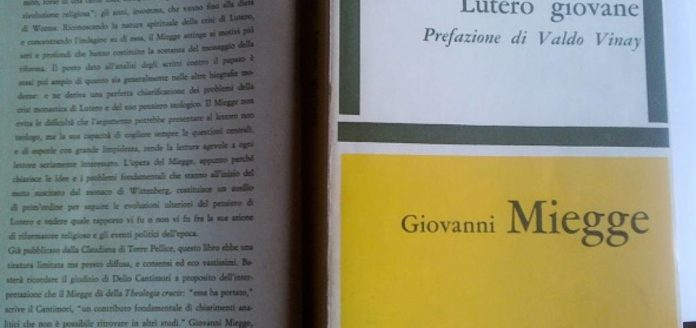Rome (NEV/Riforma.it), September 28, 2018 – Changing the world through ideas, communicating ideas through books, letting the doubt aside and meeting the other in an authentic way. Finding the way without a precise guide, knowing that guidance is in a growth always open to substance. Inge Schönthal, disappeared on September 20 at the age of 87, gave all these impulses. And this was the road followed by the publishing house founded in 1954 by Giangiacomo Feltrinelli, who married her in 1959.
 In this perspective of openness, Feltrinelli published in 1962 the translation of the Römerbrief by Karl Barth, a fundamental work of dialectical theology of the twentieth century (1922), translated by the theologian Giovanni Miegge (1900-1961), but refused by other publishers, with the cover of Albe Steiner.
In this perspective of openness, Feltrinelli published in 1962 the translation of the Römerbrief by Karl Barth, a fundamental work of dialectical theology of the twentieth century (1922), translated by the theologian Giovanni Miegge (1900-1961), but refused by other publishers, with the cover of Albe Steiner.
Protestant theology, especially the Italian one, didn’t have a great resonance in the editorial culture of our country in those years. But over the years ’60, Feltrinelli edited the Young Luther by Giovanni Miegge (first published by La Claudiana in 1946) and the second edition of the Biblical Dictionary by Giovani Miegge.
Later, assuming the guidance of the publishing house after the death of her husband, Inge Feltrinelli (who was also a photographer and celebrated a series of personalities, especially writers) published some of the latest books by the philosopher Mario Miegge (1932- 2014): The dream of the king of Babylon. Prophecy and History from Thomas Müntzer to Isaac Newton (1995) and What is the historical consciousness? (2004).





























